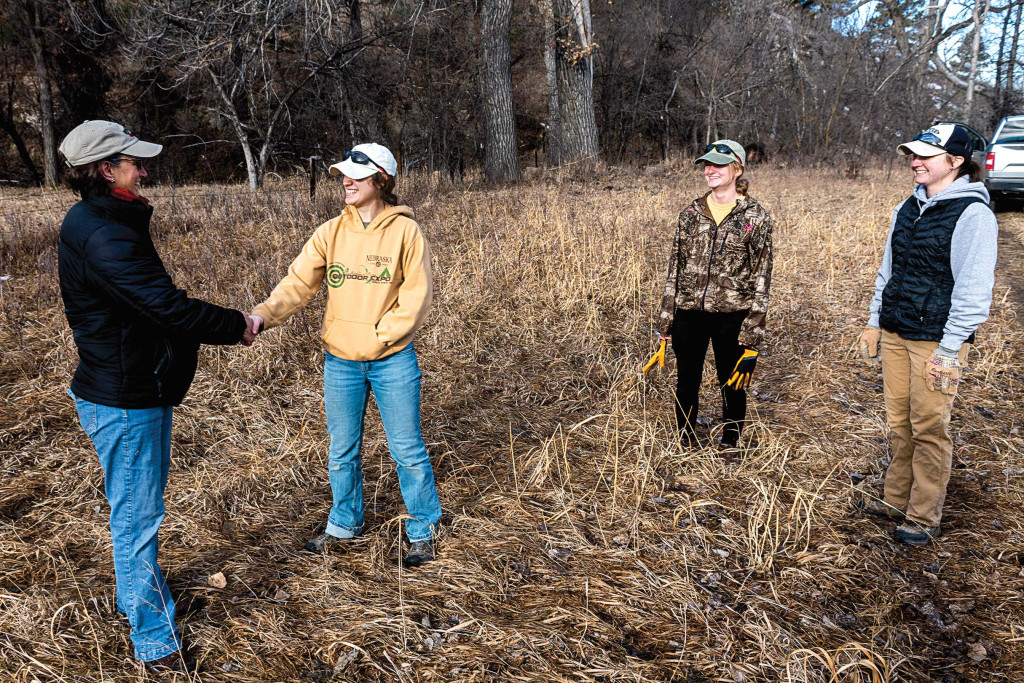
By Ryan Sparks
Growing up on a Nebraska farm, I was blessed with an abundance of land to hunt, but when I moved out of state, I learned the importance of creating relationships with landowners. Having been on both sides of the door — being the one knocking and also seeing what influenced my family to give permission — has provided me with a unique perspective. Here are my top takeaways:
Know who owns the land.
Just because someone lives adjacent to where you want to hunt doesn’t mean they own it. Resources like OnX or county assessor GIS maps (nebraskamap.gov) will give you a good understanding of land ownership. It’s also a good way to identify small properties that might go unnoticed or to identify landowners with multiple properties. You might gain permission to hunt several places by knocking on a single door.
Ask permission well ahead of the season.
Not only does showing up the week before season make you seem unprepared, you also want the first shot at asking permission. Most landowners give permission to a single person. You want it to be you.
Present yourself in the best light.
Look respectable, be polite, clearly state where and when you want to hunt and go from there. If they say no, ask if they know anyone in the area who might let you hunt, and then thank them and move on.
Start small.
Not many people are going to give you permission to hunt giant bucks on their property, but a lot of landowners don’t think twice about squirrels, quail or even turkeys. If you are hunting to fill the freezer, let them know you are more than happy to shoot a doe. Some landowners prefer archery hunters. Establish yourself as a respectful hunter with your actions.
Be clear with your intentions.
Some landowners want to know exactly when and where you want to hunt. Let them know what vehicle you will be driving, where you plan to park and give them your phone number in case they have questions.
Treat landowners and their land with respect.
Don’t drive off-road without permission, and don’t drive down roads when it’s muddy and leave ruts that will have to be repaired, or worse, get stuck and have to be pulled out. Pick up any trash you find as well as your spent shotgun shells or rifle cartridges. Leave gates the way you found them and don’t invite friends that haven’t clearly also been given permission.
Show appreciation.
Send photos of the success you have and offer them some of the meat. With these things in mind, you will have places to hunt for years to come.
